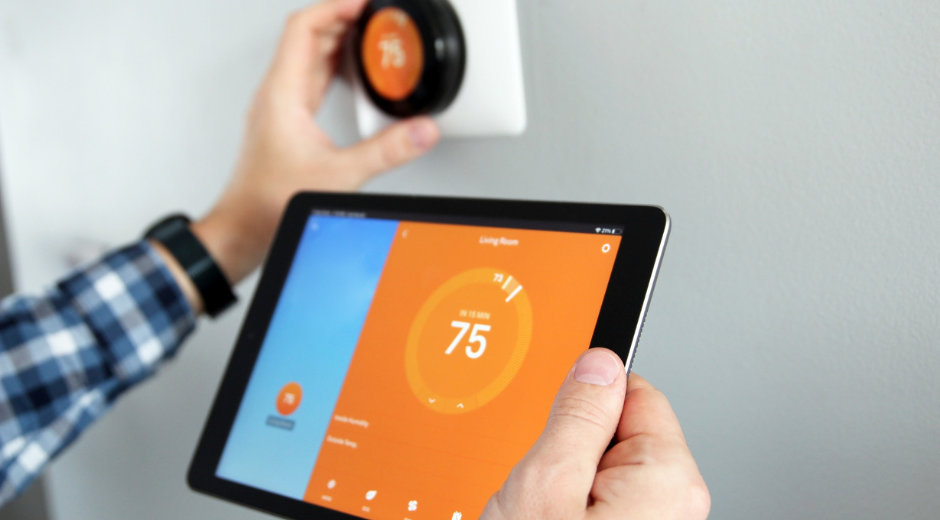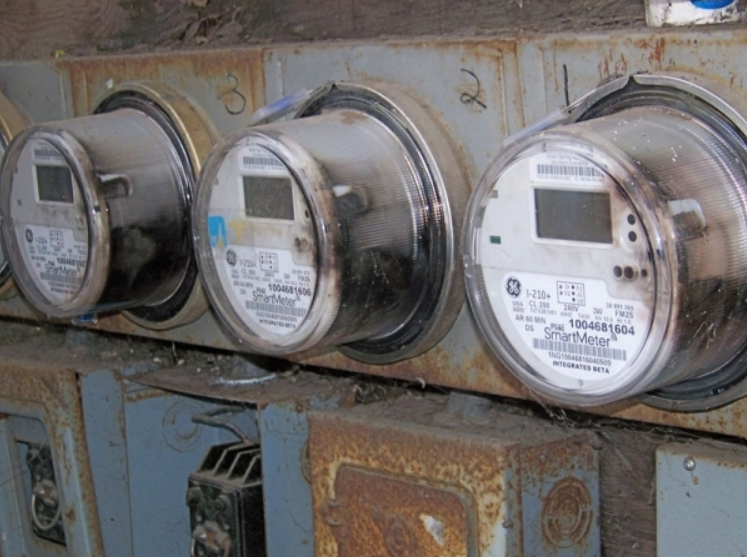Thermostat Control: Your Choice Or Theirs?

BY NICK ROGERS
STATEWIDE - A proposed bill could give control over Ohioans’ (Smart) thermostats. This “demand management” scheme is being presented as a way to manage the growing energy demand data centers are/will be placing on our energy grid, along with the usual “climate change” fear mongering and our need to ration energy usage. Supporters view the bill as a must to prepare for future energy strain, while detractors call the bill an intrusion of privacy and normalization of scarcity.
HB 427 – introduced by Rep. Roy Klopfenstein (R-Haviland) and currently sitting in committee – is based upon the idea that Ohio energy companies should reserve the right to arbitrarily decide when to raise customers’ thermostats during the hottest days and/or cycle a customer’s use of water heaters, laundry machines, and dishwashers.
The bill comes on the heels of DeWine’s signing of HB 15; a bill that, amidst a proposed general overhaul in energy production, would streamline the process for the creation of new energy facilities with the purported end goal being more “base load” power. Apparently, this base load generation will not come soon enough, as Ohioans are being told they should sacrifice their current comfort (and perhaps safety) for the common good.
“This legislation is a crucial step in our state's comprehensive plan to ensure all Ohioans have access to reliable, affordable, and readily available energy,” Klopfenstein said. “Demand response programs have proven to be a vital tool for our large commercial users, and it's important that similar programs are made available to residential and small commercial users. These programs will ease the strain on our energy grid and save money for all Ohioans.”
A similar bill – HB 79 – passed the House but eventually died last year. That bill would have automatically enrolled all Ohioans in a program charging them $1.50 a month with the carrot-and-stick incentive to buy “energy efficient” (aka Smart) appliances. Americans for Prosperity Ohio (AFP) vehemently opposed the bill which would have – unlike HB 427 – required Ohioans to opt out as opposed to opting in.
Larry Behrens of thecentersquare.com, in an op-ed response to the proposed bill, called Smart thermostats a “dumb policy.”
“In late summer 2019, an elderly woman I knew from church asked me to stop by her house in our New Mexico neighborhood," Behrens said. "It was late August, the kind of day when the desert sun turns homes into ovens, and her air conditioner simply wouldn’t keep up."
The woman’s energy company, according to Behrens, had installed a regulator on her air conditioner as part of a “power saving” program. These programs, he points out, are also underway in Colorado and Indiana.
Klopfenstein did highlight the fact that HB 427 would be voluntary.
“It is important to clarify House Bill 427 does not create demand response programs but creates clear guardrails and safeguards,” he said. “If a customer does not trust their utility, they should not enroll and make the utility earn their trust.”
Distrust of Ohio energy companies and the Public Utilities Commission of Ohio (PUCO) should be at an all-time high. From illegal “riders” to corrupt bribery scandals, it’s hard to believe a politician when he says a new bill will “save money for all Ohioans.”
Monthly bills aside, a much more dangerous and far-reaching “Smart Grid” (aka control grid) implication exists.
Just as the likes of Bill Gates and the World Economic Forum are pushing ridiculous narratives like the need to eat insects to prevent climate change, those controlling our energy distribution are trying to instill fear and guilt in us for simply being comfortable within our own homes.
“Think of it this way,” Behrens said. “We would never accept Comcast taking control of our television or your internet provider cutting out news sources and social media sites. Yet, when it comes to air conditioning – the very system that keeps us safe in dangerous heat – we are told it’s normal for strangers to decide how cool our homes are allowed to be. That’s not noble, it’s rationing with a smartphone app. And if a utility company – or a government bureaucrat – can dictate the temperature of your living room, then your home is no longer your castle. It’s just another outpost in the grid they control.”
As the “internet of things” integrates with the “internet of people,” the prospect of outside control over our appliances (or our bodies) should send a chill down any rational, freedom loving Ohioan’s spine.
Big Energy wants control over your thermostat. Will you opt-in?




